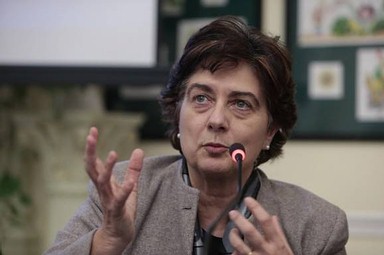father Aleksandr Men’, the “law” of a living men a witness from the USSR
The Soviet Union was a country ruled by inflexible laws that were supposed to make man better and society perfect. But in reality these laws were against man. They paralyzed his conscience, eliminated his sense of responsibility, and impeded him from the risk of freedom. In this country an orthodox priest, Father Aleksandr Men’, followed a different law that freed him from any external conditioning. His law was to follow Christ in everything, and to grasp His presence in everything. He had learned that the Mystery was a familiar presence ever since he was little, when his mother used to bring him to a small Christian community that met in the catacombs. He had already understood then that this Mystery had taken a human face, and had come to live among us. At 14, Aleksandr Men’ had started writing a book about the Person of Christ, which had struck him so deeply that he, a Jew by birth, was baptized in the terrible years of anti-religious persecutions. The title of this book was The Son of Man, and he continued to write it throughout his life. He finished it a few days before he died. He accepted with serenity all the obstacles posed by the State. These included, for example, not being allowed to register in the school of philosophy, because he was Jewish, and being expelled from his university right before he graduated, because he was orthodox. He faced challenges in gaining admission to his seminary, and then he was continuously transferred from one parish to another. Furthermore, he was not allowed to preach. But Father Men’ knew that these challenges only made him follow Christ more truly, within all realities, from big historical events to small daily events. He preached Christ tirelessly, only Him, without ever stopping to criticize the hard times he had to live in. He was supported by his solid faith, that the greatness of human reason consists in learning to see the traces of this Presence, that alone can quench this thirst for happiness and the infinite that is in man. For this reason he was an alive and joyful man, and he fascinated many thousands and even millions of people who converted because of him. All this happened at the same time that the official ideology was announcing a progress built at the expense of the human person, who had been leveled and reduced to a cog in the system. In the 1980’s, perhaps the toughest years of this life, he was summoned almost daily to Lubjanka, KGB’s general headquarters. In addition, every day he would welcome an incessant flow of people, who would go to meet him. He led several communities of lay people who were following his educational method, and he secretly wrote books to spread Christianity. Due to his initiatives, the Russian regime considered him extremely dangerous, even though he never expressed himself about politics. Although his communities and his very life were in serious danger at times, whoever met him could see that he was a happy and free man in love with life, that he loved in all its different aspects, from friendship to nature. He appreciated beauty, loved to sing and play, to spend time with friends, and enjoyed good food… However, in all this, it was evident that he looked intensely at reality, and, by doing so, he would also orient the gaze of his interlocutors in such a way as to fix it on the Living Christ, who was his constant companion.
Edited by Pavel Men’ – Aleksandr Men’ Foundation (Moscow), Giovanna Parravicini – Christian Russia Foundation (Seriate). In cooperation with Angelo Bonaguro, Adriano Dell’Asta, Marta Dell’Asta.











